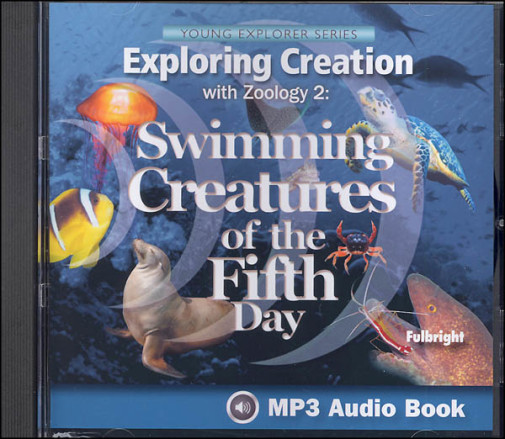We use cookies to make your experience better. To comply with the new e-Privacy directive, we need to ask for your consent to set the cookies. Learn more.
Exploring Creation with Zoology 2 MP3 Audio CD
Apologia Science courses are written from a Biblical worldview with the homeschool in mind. At the elementary level, courses follow a Charlotte Mason-inspired methodology, with lessons organized around narration, notebooking exercises and hands-on activities or projects. Children at different ages can use these together, learning at their own level. Each course is designed to be teacher-student interactive, so teacher involvement is fairly high at this level. At the junior high and high school levels, science courses are more traditional in nature, with the textbook written to the student. Teacher involvement time at this level is much less than at the elementary level. Textbooks contain student reading, lab instructions, "On Your Own" questions and Study Guide questions. A Solutions Manual provides the answers to these and the test questions. Lab kits are available separately for both the elementary and upper-level science courses which include most of the harder to find items you will need.
Once students have learned all about the creatures of the air and the basics of zoology, they can take a trip into the depths and discover all the strange and unique creatures of the sea, lakes, and rivers. They'll learn about the special features of swimming creatures, the different watery environments they live in, what their lifestyles are like, and the special circumstances they deal with. Then they take a closer look at specific groups of swimming creatures, including whales, seals, sea cows, sea turtles, sea snakes, sea frogs and toads, primeval reptiles (like plesiosaurs), fish, sharks, rays, crustaceans, cephalopods, echinoderms, cnidarians, sponges, leeches, and more. As they study these creatures, they'll create replicas of them to add to an ongoing "Ocean Box," and conduct neat experiments like discovering the insulating power of fat, investigating how electrical current travels through salt water vs. fresh water, and determining how much of a role temperature plays in tadpole development. They'll also add to their notebooks by drawing the animals in them, comparing and contrasting animals, and much more. Whether the ocean is a familiar place to your children or not, they'll be equally fascinated by learning about the unique creatures beneath the water.
| Product Format: | Other |
|---|---|
| Brand: | Apologia |
| Grades: | K-6 |
| ISBN: | 9781940110134 |
| Length in Inches: | 5 |
| Width in Inches: | 5.5625 |
| Height in Inches: | 0.3125 |
| Weight in Pounds: | 0.2 |

